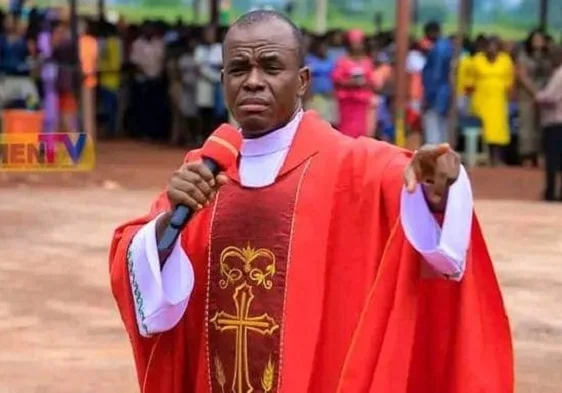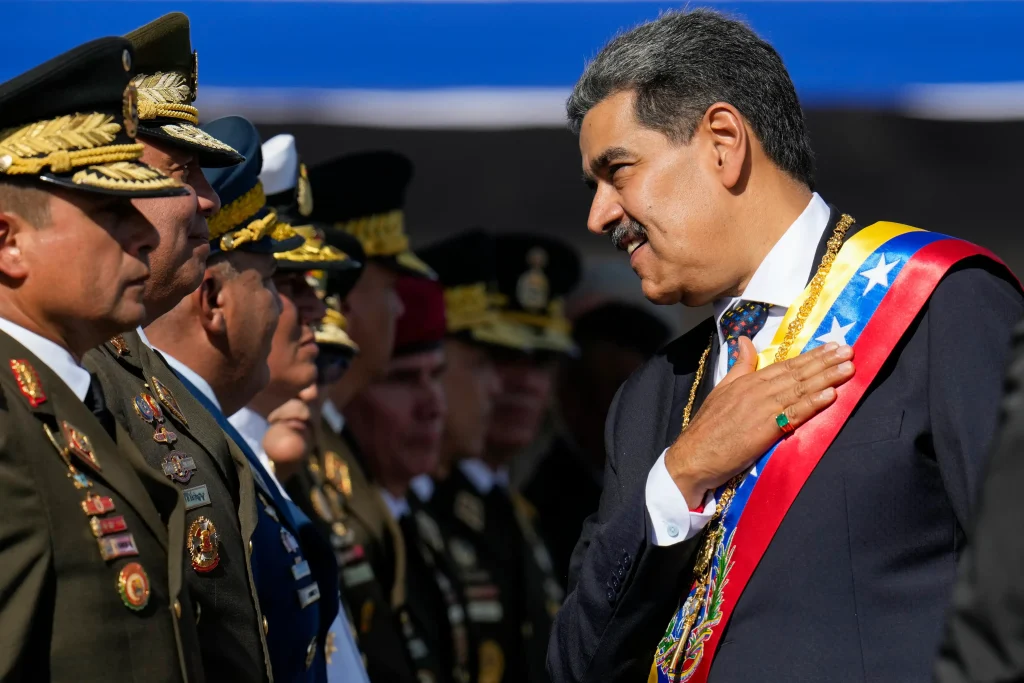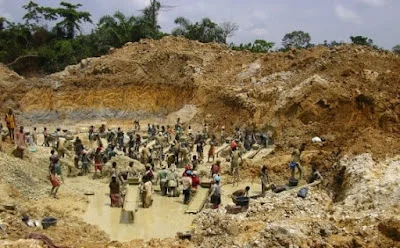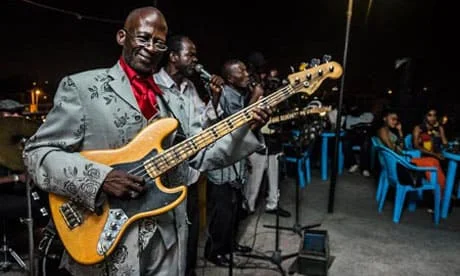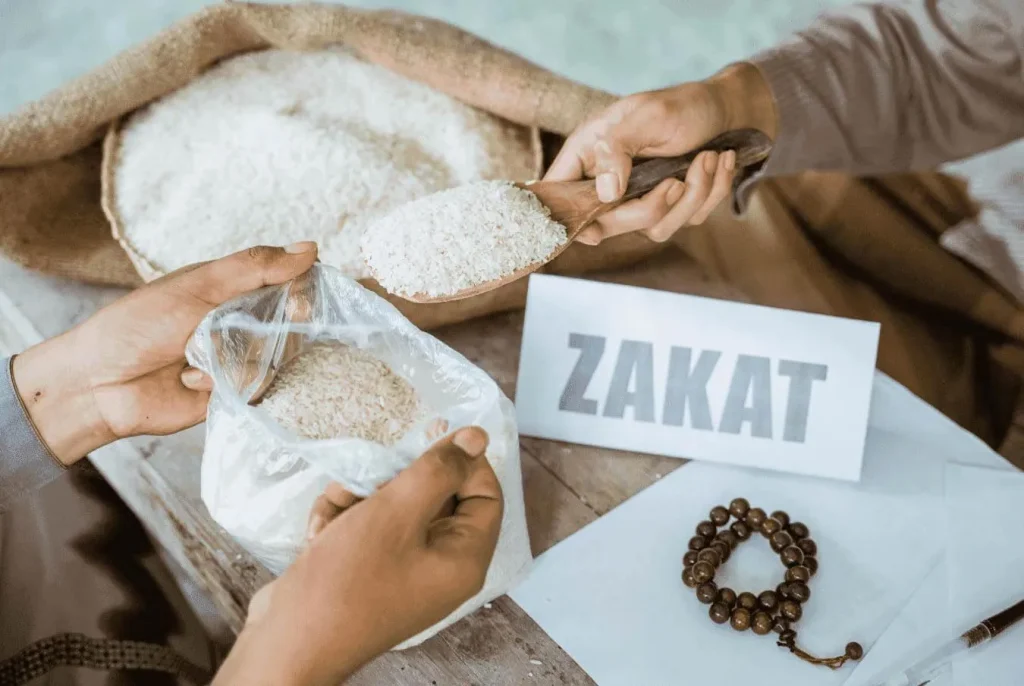Rev. Fr. Ejike Camillus Mbaka, the fiery Nigerian Catholic priest and Spiritual Director of the Adoration Ministry Enugu Nigeria (AMEN), has become a staple in the country’s political narrative—often stirring controversy with his prophecies and statements. Though some of his predictions have come to pass, others have backfired, prompting widespread skepticism about whether his messages are divine revelations or politically motivated declarations.
Prophecy or Insider Leak?
The prophecy that sparked nationwide debate came on December 31, 2019, when Fr. Mbaka predicted that Senator Hope Uzodinma of the All Progressives Congress (APC) would become governor of Imo State.
This prophecy materialized just two weeks later when the Supreme Court, led by Chief Justice Tanko Muhammad, removed Governor Emeka Ihedioha of the Peoples Democratic Party (PDP) and installed Uzodinma.
Mbaka’s words during the crossover night were direct:
“In Imo State, there is hope. Hope, hope, hope in Imo State! Lift your candles as I bless Hope Uzodinma; and I empower him spiritually to take over. How? I do not know.”
While many of his followers heralded the prophecy as divine, critics argued that Mbaka may have received insider information from his political allies in the APC. His known support for President Muhammadu Buhari and other APC figures only fueled these speculations.
His spokesman, Maximus Ugwuoke, later claimed the prophecy was one of 40 utterances made during the crossover night.
“Uzodinma becoming governor was just a part of about 40 prophetic prayers Fr. Mbaka made… but that became the only issue people satanically picked on.”
Prophet or Power Broker?
Fr. Mbaka’s critics often accuse him of wielding his pulpit for political leverage. Following Ihedioha’s removal, he lamented that the former governor never sought his spiritual intervention:
“What’s the distance from Imo to Enugu? Ihedioha should have come to Adoration and sought God’s intervention, rather than attacking the message and the messenger.”
Such remarks have been interpreted as attempts to position himself as a political power broker—one whose favor must be sought to remain in office.
In 2018, Mbaka publicly criticized President Buhari for failing to show gratitude for the ministry’s support in the 2015 election. Speaking during an event attended by then-Governor Abdullahi Ganduje of Kano, Mbaka fumed:
“We have been supporting you people… Buhari will remain in Aso Rock, being somebody who cannot give money. What does that mean?”
He complained that Buhari ignored the ministry despite benefitting from its support, and even hinted that the President’s health would suffer as a consequence.
“If Buhari remains ungrateful, he is going nowhere… How many times had he almost died? He should not take it for granted that he is now healthy.”
These outbursts portrayed a deep frustration over unmet expectations—mostly financial support and recognition from the political elite.
Mbaka: A Modern-Day Nostradamus or Not?
Fr. Mbaka’s history of political prophecies dates back years. In 2015, he famously declared then-President Goodluck Jonathan a “bad luck” to Nigeria and endorsed Muhammadu Buhari—a prophecy that came to pass.
“The Goodluck met Yar’Adua and Yar’Adua died. Before you know it, the Goodluck met our oil, our oil had bad luck…”
He also predicted the long-awaited victory of Rangers FC in the 2016 Nigerian Premier League, which came true.
However, not all of Mbaka’s prophecies have been accurate. In the late 2000s, he prophesied that then-Governor Chimaroke Nnamani of Enugu State would be disgraced out of office. Nnamani not only completed his term but won re-election.
Similarly, when Prof. Dora Akunyili ran for Senate under the Jonathan administration, Mbaka reportedly assured her of victory after a visit to his Adoration ground. She lost to Dr. Chris Ngige.
In 2018, he again prophesied that Buhari should not run for a second term, warning of disgrace and ill health if he ignored the message. Buhari contested and won.
The Verdict: Divine Calling or Political Machination?
Fr. Mbaka’s political entanglements have polarized public opinion. While some view him as a spiritual voice unafraid to speak truth to power, others see a clergyman whose prophecies are entangled with political favoritism and personal expectations.
His disposition—marked by shifting political alliances, outbursts when ignored, and controversial endorsements—has made many question whether his prophecies serve divine interest or personal gain.
What remains undeniable, however, is Fr. Mbaka’s lasting presence in the intersection of Nigerian religion and politics. Whether as a genuine prophet, political oracle, or controversial influencer, his voice continues to reverberate loudly across Nigeria’s socio-political landscape.


